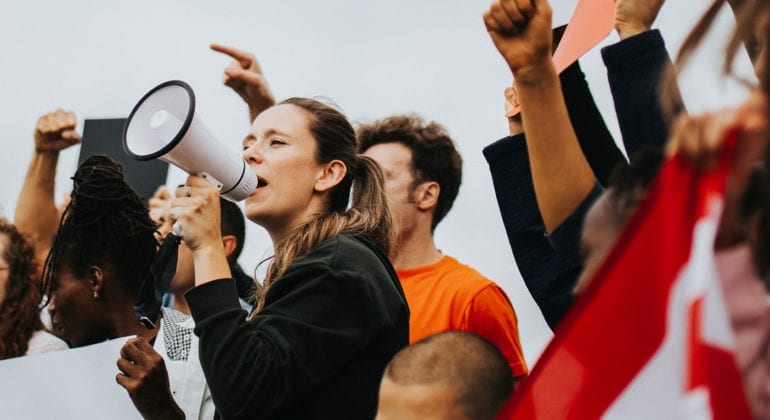While Sen. Bernie Sanders ultimately conceded to Hillary Clinton in the 2016 Democratic Primary Election, a tight race allowed him to shed the light on progressive issues important to the Millennial population. Support from legions of millennial activists propelled the “revolutionary” Sanders agenda into the spotlight and continues to shape policy.
And that, according to 27-year-old Clinical Forensic Psy.D. student Mara Justice, is the Millennial way of politicking.
“Politics is still very much the older generation’s game,” Justice says. “We are influencing public policy, but not politics … yet.”
Dr. Eleazar Eusebio, associate professor of school psychology at The Chicago School’s Chicago Campus agrees that while this generation may not yet be ready to mount major political campaigns as candidates, they are hardly reluctant to contribute to the conversation.
Social impact outside of politics
“Younger people are increasingly getting involved with issues in social justice and sharing their often progressive views in support of social change and equality,” Dr. Eusebio explains. “They see politics as a hindrance to getting things done. They feel that more social action takes place online than in the White House.”
In fact, a February 2016 article in The Atlantic argues that Millennials see themselves as revolutionaries for urgent social rights, particularly for black Americans and gay couples. “They sense that they are both America’s impoverished generation and its moral guardians—absent on the payroll, but present at the revolution,” the piece asserts.
Just don’t try to pin them down to a mainstream political party. As the 2016 presidential primary showed, Sanders—a Democratic socialist who is barely a member of the Democratic Party—was the Millennial favorite because he was viewed as an establishment outsider.
Millennials find their voice
“Historically, younger generations have pushed and supported progressive agendas, but Millennials have taken it to another level with the advent of the Internet and the infinite ways to communicate and sustain a cause or movement,” Dr. Eusebio adds.
Case in point might be Brigade, an app launched in 2015 by Napster founder Sean Parker that bills itself as “the world’s first network for voters.” Or, as a Washington Post article put it, “like a Tinder for politics.”
In September, Brigade announced a new partnership with “We The Voters,” a nonpartisan digital slate of 20 short films designed to inform, inspire, and ultimately activate voters. “We believe that technology can fundamentally change how citizens engage in our system of government,” according to a statement on the Brigade.com blog. “New approaches to spur civic participation must meet voters where they are.”
Dr. Eusebio says this is just one example of how Millennials are finding entrepreneurial ways to solve problems and create new platforms for activism and dialogue.
“They appreciate the self-governance of innovation in a way that the world doesn’t have to spin in the same way it always has,” he adds.
The question now is, how will all of this activism continue to translate? What good is a political revolution if not enough Millennials show up to vote?
Pew Research Center statistics are less than encouraging, showing that between 1964 and 2012, voter turnout for the U.S.’s youngest generation had fallen below 50 percent. Furthermore, voters between 18-29 made up just 19 percent of the electorate in the 2012 election, compared to Baby Boomers at 38 percent.
However, that may not be the most accurate barometer. According to a May 2016 piece on NPR, this year’s presidential race marks the first time essentially all the Millennials are old enough to vote.
Kei Kawashima-Ginsberg, director of CIRCLE, the Center for Information and Research on Civic Learning and Engagement at Tufts University, told NPR that while millennials are collectively reaching an age where voters traditionally become more stable, the fact that they move around so frequently might be a barrier. Another potential obstacle to Millennial voter turnout is that unlike grocery shopping and banking, there is no app for voting. They will need to turn up at the polls.
Only time will tell.
But Dr. Eusebio remains hopeful, not just for this generation but for the next to follow—the ones born after 2000, or Generation Z.
“I already know 8- and 10-year olds who are out there trying to improve their neighborhoods,” he says. “They share the passion and need for social change. They are learning from the Millennials but we can expect them to take things to the next level. So I am very optimistic about the long-term impact that these young voices will leave for future generations.”
Learn more about The Chicago School of Professional Psychology
The Chicago School offers a range of academic programs that can prepare you to positively impact mental health. Fill out the information below to request more information, or you can apply today through our application portal.

